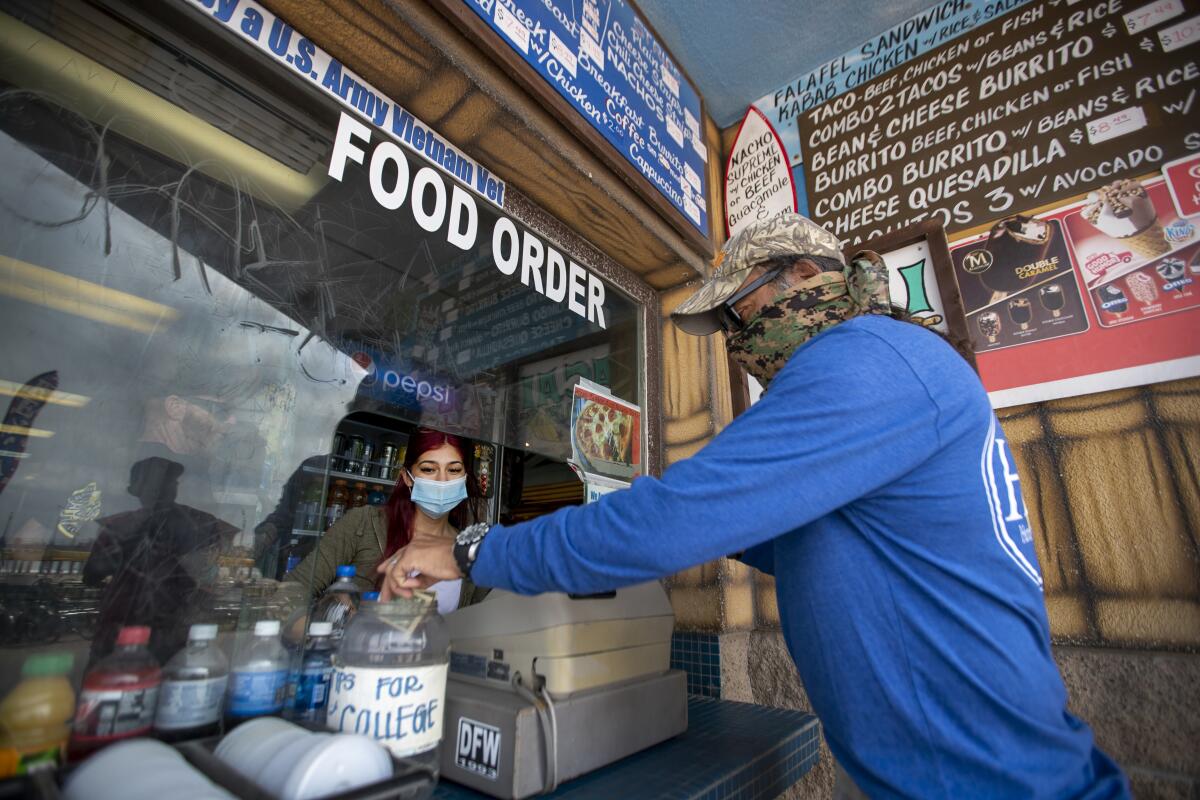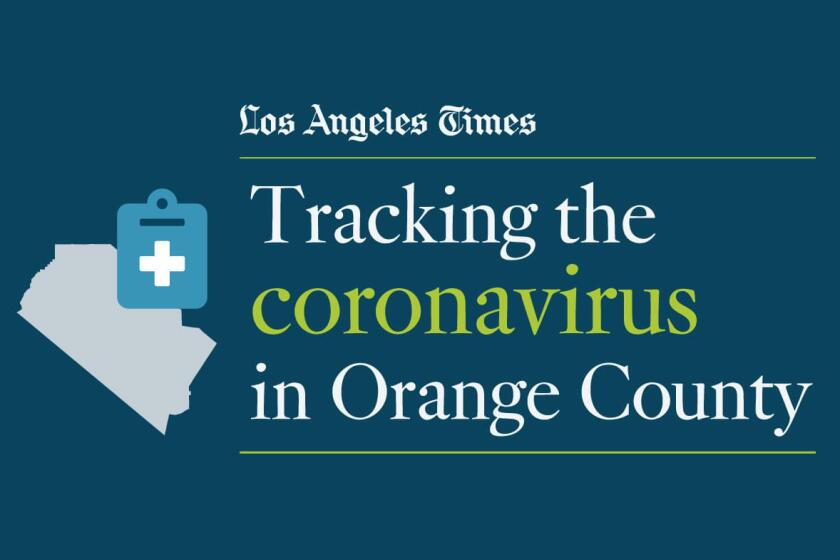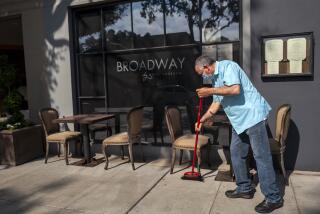Orange County could be set for wider reopening amid improved COVID-19 numbers

- Share via
With coronavirus numbers continuing to improve, Orange County officials said this week that a wider reopening of businesses could be around the corner.
The county is in Tier 2 — the second-strictest in California’s four-tier system that assesses COVID-19 transmission. However, officials said this week they think Orange County could soon enter the less-restrictive Tier 3, based on how numbers are trending.
“There has been a steady but consistent decline in testing positivity rate,” County Executive Officer Frank Kim said Monday. “Things are looking good.”
The latest maps and charts on the spread of COVID-19 in Orange County, including cases, deaths, closures and restrictions.
To move into the next tier, Orange County would need to have 1 to 3.9 new COVID-19 cases per 100,000 people per day and a test positivity rate of 2% to 4.9% for two consecutive weeks.
Orange County’s positivity rate was 3.1% as of Tuesday, according to state data, and its daily case count per 100,000 people was 3.6.
The county has reported 52,382 cumulative COVID-19 cases and 1,150 deaths. An estimated 47,197 people have recovered.
Here is how California’s new coronavirus reopening rules will impact you
Entering the new tier would allow a number of Orange County businesses to expand their indoor operations, albeit with continued modifications. For instance, churches, restaurants, movie theaters, museums, zoos and aquariums could operate at 50% capacity, up from 25%, while gyms could boost their capacity from 10% to 25% and reopen indoor pools.
However, Dr. Clayton Chau, director and county health officer at the Orange County Health Care Agency, said Monday that he continues “to encourage people that outdoor is safer than indoor, and that people who are at risk or people who are sick, they need to stay home.”
Officials have said that California’s tiered system, which Gov. Gavin Newsom unveiled in late August, is deliberative by design.
The hope is that taking a slow approach when it comes to determining how widely to reopen businesses will help stave off the kind of explosive growth in infections and hospitalizations seen over the summer — a surge from which the state has only recently begun to recover.
As campuses begin to reopen, teachers watch anxiously, and some are raising concerns publicly, including Orange County teachers who led a protest and signed a petition.
“People ask me on an ongoing basis, ‘Why the slow and stringent approach?’ ” California Health and Human Services Secretary Dr. Mark Ghaly said during a briefing Tuesday. “And I’ll remind you: We want to be slow and stringent, so as we move forward, we can be best prepared — in case we see some increase in transmission — that it doesn’t cause us to take one giant step backward.”
The state continues to see a decline in its number of COVID-19 infections and deaths. The seven-day average number of daily cases is 3,472, while the 14-day average for positive infections is 3%.
Though the trend lines are promising, Ghaly said they should serve as “a reminder that we, despite seeing a steady downward trajectory ... cannot drop our guard.”
Officials are keeping a close eye out for any increase in cases that could be linked to gatherings held over the Labor Day weekend. Such a spike occurred following Memorial Day, and since the virus can take up to two weeks to incubate, it’s still unclear how — or if — the latest holiday will affect California’s numbers.
In Orange County, officials said they’ve yet to see any evidence of that kind of surge.
“I’m keeping my fingers crossed,” Chau said. “We haven’t seen it, and hopefully, we will keep it that way.”
Times staff writer Colleen Shalby and City News Service contributed to this report.
More to Read
Sign up for Essential California
The most important California stories and recommendations in your inbox every morning.
You may occasionally receive promotional content from the Los Angeles Times.













